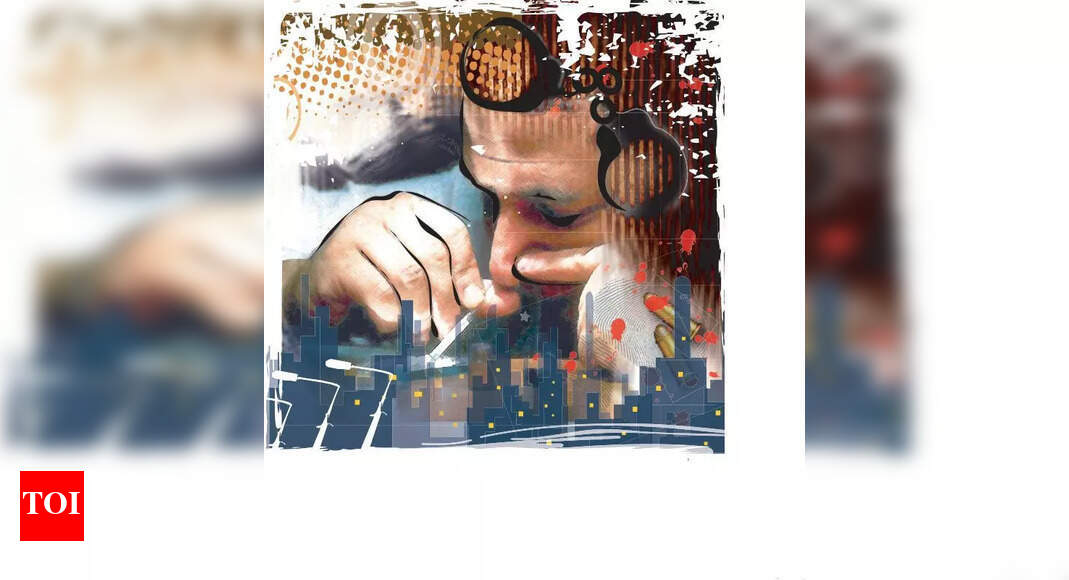Chandigarh: An ambitious initiative by the Punjab govt to widen access to drug rehabilitation by allowing private psychiatrists to dispense buprenorphine has run into a legal roadblock. Health minister Dr Balbir Singh recently announced with much fanfare that private psychiatrists would be permitted to provide buprenorphine—a critical medicine used in opioid dependence treatment—to patients at their OPD clinics. The move was seen as a breakthrough to bridge the treatment gap amid a crippling shortage of psychiatrists in the public healthcare system.However, the proposal now faces a major roadblock: a 2019 stay order by the Punjab and Haryana high court on a directive issued by the Drug Controller General of India (DCGI) that would have enabled private OPD clinics to dispense buprenorphine. The court’s interim order has resurfaced as a legal barrier, throwing a spanner in the govt’s efforts to broaden access to opioid substitution therapy.With Punjab battling a severe drug crisis, particularly among the youth, the need for wider treatment access has never been more urgent. Currently, nearly 10 lakh individuals are undergoing treatment at 529 govt-run Outpatient Opioid Assisted Treatment (OOAT) centres. To further expand coverage, the state announced plans to open 41 new OOAT clinics across 10 districts. In addition, 180 private rehabilitation centres are already functional across the state.Following the health minister’s announcement, the Association of Psychiatrists “provisionally” agreed to assist in managing addiction cases at govt-affiliated de-addiction centres. In response, the Punjab health department constituted a committee of experts—including representatives from the Association of Psychiatrists, the advocate general’s office, and senior health officials—to explore legal avenues. In its first meeting, the committee resolved to file an application in the high court seeking vacation of the stay order.This is not the first time legal ambiguity derailed policy progress. In Aug 2020, the Punjab cabinet amended state rules to allow private psychiatric clinics to dispense detoxification medication under the Narcotic Drugs and Psychotropic Substances (NDPS) Act, 1985—a longstanding demand of private practitioners. Yet by 2021, the govt rescinded this provision, citing legal opinion from the advocate general’s office, though other amendments were implemented.Health principal secretary Kumar Rahul confirmed that the govt is actively evaluating all options to implement the revised dispensing policy. “A committee of experts has been formed and is examining all relevant aspects, including legal avenues,” he said. The Association of Psychiatrists welcomed the department’s efforts but warned that the absence of a concrete timeline and uncertain legal outcomes made it difficult to offer “unconditional” support. “A lot of time has already passed. Without clarity, it will be hard to engage the psychiatric community for long,” the association stated.It further contended that the stay order does not explicitly prohibit implementation of the amended rules, and that the govt’s own OOAT centres continue to dispense the same medication under similar legal uncertainty. “We are ready to assist the govt, but not at the cost of being misled into believing this is a favour—when it’s a rightful provision,” the body said, adding that individual psychiatrists must now weigh the risks of relying on delayed govt action.EXPERTS PUSH FOR EVIDENCE-BASED ADDICTION CAREPublic health specialists, including the Indian Psychiatric Society (IPS), have repeatedly criticised Punjab’s existing de-addiction model as outdated and ineffective. The IPS has called for treatment to be aligned with evidence-based protocols, particularly the routine use of buprenorphine, and urged that addiction care be brought under the Mental Healthcare Act for better regulation and patient outcomes.

Drug fight: Punjab’s plan to allow private psychiatrists to dispense buprenorphine faces legal hurdle | Chandigarh News
- 21 June 2025